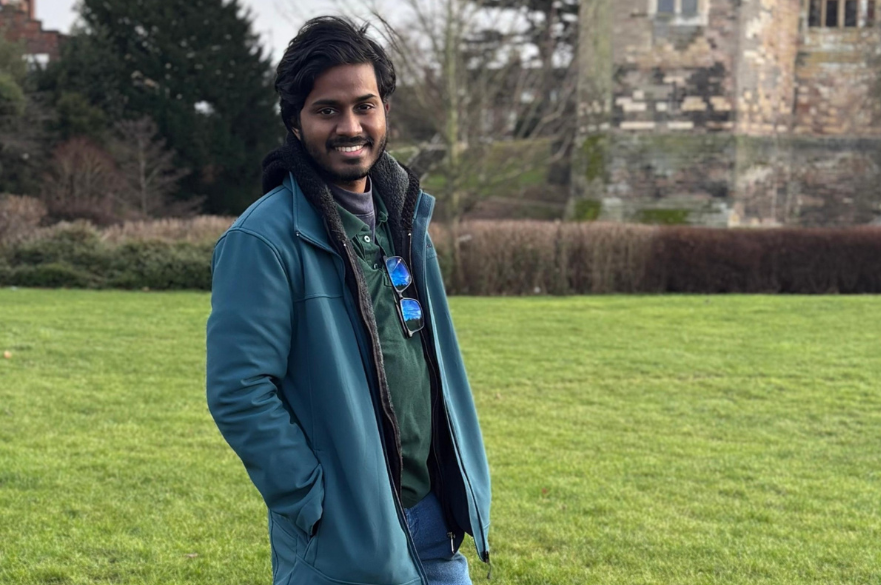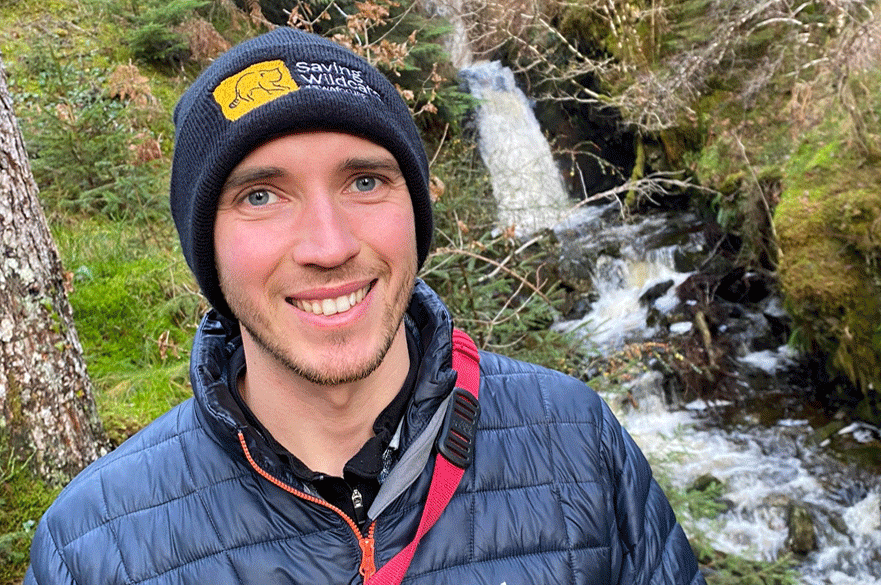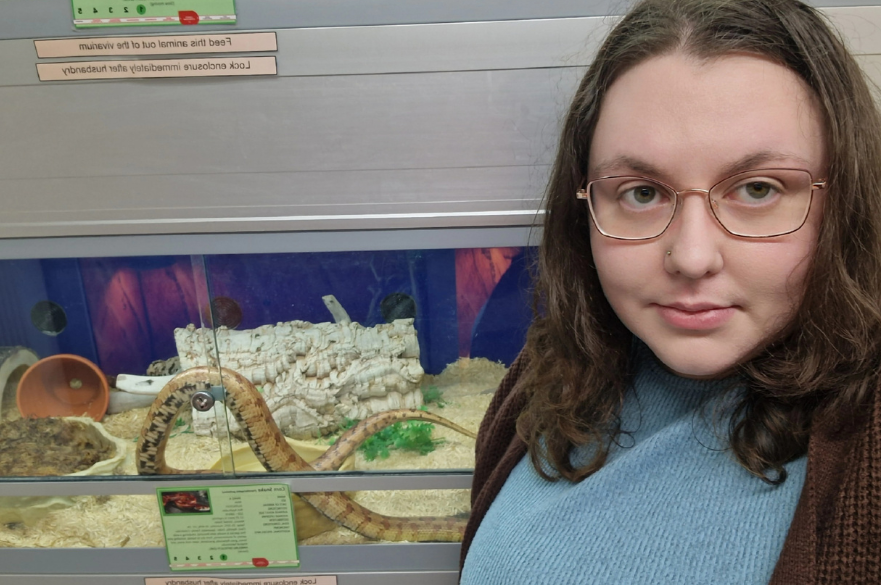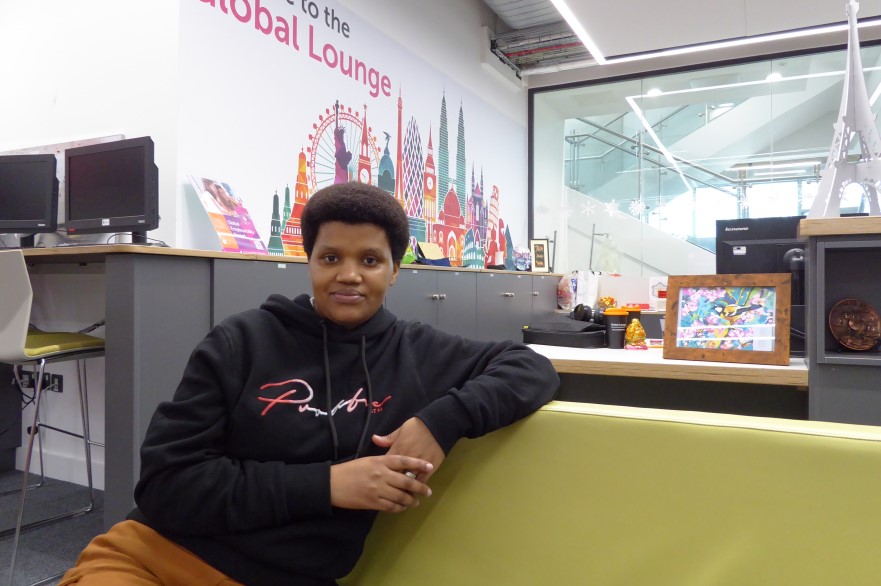
Excellent instruction is provided by the teachers, who are supportive and knowledgeable and who simplify difficult subjects.
More about Opita Gamage Yasiru Dilshan
Why did you choose to study your course at NTU?
I decided to enrol in NTU's Master of Biodiversity Conservation program because of its emphasis on applied conservation and track record of producing significant biodiversity research. Having previously written papers and carried out a number of research studies on biodiversity issues, I wished to expand my knowledge and make a more significant contribution to conservation initiatives. NTU provides a great setting for investigating cutting-edge research prospects, innovative approaches such as GIS and R, and partnerships with subject-matter specialists. Furthermore, NTU Scholarships really help me to balance my financial side.
What made your mind up about studying a PG course at Brackenhurst Campus?
My decision to enrol in a postgraduate program at Brackenhurst Campus was influenced by NTU's stellar international and UK rankings, which I found out about online. I was drawn to the university because of its stellar reputation for providing top-notch instruction, particularly in the area of biodiversity protection. Furthermore, Brackenhurst Campus's lush natural settings and cutting-edge equipment provide a distinctive and immersive learning environment that is perfect for practical biodiversity and conservation research.
What do you enjoy most about your course?
My favourite aspects of my course are the carefully considered module material and the dynamic teaching style. In addition to being educational, the interactive lectures and hands-on activities make difficult subjects simpler to comprehend and apply. I'm inspired and eager to learn more because the modules are well-structured and cover a variety of important topics in biodiversity conservation.
How do you find your modules and what have you most enjoyed studying/researching?
My modules strike the ideal combination between theoretical knowledge and real-world application, and I find them to be highly informative and interesting. The theory courses, which offer a solid basis in biodiversity conservation, and the research opportunities, which enable me to further explore areas of personal and professional interest, have been especially enjoyable. Another highlight has been the practical workshops, which have improved my technical and analytical skills by allowing me to work directly with tools like R and GIS.
What do you think about the facilities available on your course and what do you use the most?
My course has first-rate facilities that significantly improve the educational process. I especially value the library since it provides a wealth of resources that are necessary for my research and studies, such as books, journals, and online databases. Additionally, the library's PCs have been very helpful in giving me access to specialised applications that I need for my study, such as R and GIS.
What do you think about Brackenhurst Campus? What do you get up to in your spare time?
With its serene setting and lovely surroundings that are ideal for learning and fostering a connection with nature, I believe the Brackenhurst Campus to be an exciting location to study. I've liked taking coffee breaks at the Orangery in my free time because they provide a tranquil diversion from studying. I also enjoy visiting Southwell and the charming, historic surrounding towns. Walking about the region has been a wonderful way to relax and take in the scenery and wildlife.
What is your top tip for someone considering studying/living at Brackenhurst Campus?
Being ready for the weather is my best advice to anyone thinking about living or studying at Brackenhurst Campus. To keep comfortable during the colder and rainier months, I strongly advise packing thick jackets and waterproof shoes or boots. These are necessary if you want to appreciate the campus and its environs, particularly if you intend to engage in outdoor activities or travel through Southwell's stunning countryside.
Have you been involved in any placements, work experience or volunteering as part of your course? If so, what did you do and what did you achieve?
As part of my course, I haven't yet participated in any volunteer work, work experience, or placements. But I'm excited to investigate these options further since I think they'll provide me useful real-world experience and enable me to apply what I've learnt to actual conservation problems.
Have you been involved in any research events or conferences during your time as a postgraduate student? If so, what did you do and what did you achieve?
As a postgraduate student, I haven't yet taken part in any research conferences or activities, but I intend to do so in the future. I'm excited to interact with other researchers in the field and share my findings on threatened and endangered species. These chances will be crucial for networking, getting input, and supporting the larger conservation community.
Why would you recommend your course to someone considering studying it?
Because of its thorough and useful approach, I would heartily recommend this course to anyone interested in biodiversity protection. Excellent instruction is provided by the teachers, who are supportive and knowledgeable and who simplify difficult subjects. The module's material is interesting and varied, addressing both theoretical and practical topics that are crucial for actual conservation efforts. The Brackenhurst Campus offers a stunning natural backdrop for learning, and the facilities—including the library and access to cutting-edge tools like GIS—are excellent. Furthermore, the chance to do study and fieldwork gives students the tools they need to significantly contribute to conservation.
What are your plans for after the course and how do you feel your course has/will help you to achieve that goal?
I intend to either apply for a Ph.D. in biodiversity conservation or look for employment prospects in the field after finishing my study. I now possess the advanced knowledge and useful abilities required for these following levels thanks to this training.
Still need help?
-

STUDENT PROFILE
Alex Scurrah-Price
Endangered Species Recovery and ConservationUnited Kingdom
https://www.ntu.ac.uk/study-and-courses/courses/our-students-stories/animal-rural-environmental-sciences/alex-scurrah-price
-

STUDENT PROFILE
Alice Weaver
Endangered Species Recovery and ConservationUnited Kingdom
https://www.ntu.ac.uk/study-and-courses/courses/our-students-stories/animal-rural-environmental-sciences/alice-weaver
-

STUDENT PROFILE
Anne Nyiransabimana
Biodiversity ConservationRwanda
https://www.ntu.ac.uk/study-and-courses/courses/our-students-stories/animal-rural-environmental-sciences/anne-nyiransabimana